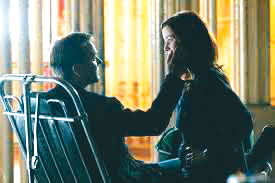Casual Relationships the Norm
The Dominion Post on 25 June last opened with the headlines that the number of marriages are dropping and marriage appears to be out of favour with our young people. This makes for disturbing reading and reflects what we are now seeing time and time again on our television screens.
Shortland Street, Close to Home and other programmes are based on the easy formation and break up of relationships. These programmes have silently attacked the values society placed on marriage to the extent these relationships now form part of our throw-away culture and treat these as disposables, along with our used cars and clapped-out furniture.
What we should be doing is actively encouraging long term relationships – not the casual flings. It should not be OK to have children to a number of different partners (and yes – this includes men as well as women). Children are the result of sexual adventures and despite the development of the pill and other contraceptive methods, accidents do and will happen. 
In my generation we did not have the variety of recreational drugs that exist now. (In fact we only had tobacco and alcohol. Heroin had been heard of but was not readily available. Cannabis use was minor and herbal highs had yet to be invented).
Our children are now facing challenges that my generation never had.
In particular:
a) The continual bombardment of programmes relating to the formation and break up of relationships. In our days, the diet of TV used to be The Andy Griffiths Show and Mr Ed, to name a few. (I am not advocating a return to those days with just the one black and white channel).
b) The availability of recreational drugs.
c) The easy access to alcohol and the increased ranges of drinks available including RTD’s. Included in this are reviews of which wines to drink, the pricing of alcohol (a cask of wine has only increased $11 since 1983) and the lowering of the age of consumption – down 21 to 18 yrs).
The real challenge facing our society is not alcohol or drugs. It is the expectation that relationships are only temporary. We now have a number of confused parents who cannot accept that when the relationship is over, the children (if any) will have to live with a parent full time and the other parent may see the children every second weekend only.
Our young people can be confused and left feeling cheated. They have entered the relationships in good faith, only to be let down and when things get difficult, the relationship is over. One of them is literally left holding the baby and the other may spend many hours and tears trying to get access to the child. There are going to be a number of readers who will question the Family Court processes. That is still hard-going and in nearly all instances, only one parent will be appointed the full time carer.
Quite apart from the welfare of the children is the self-esteem of the couple involved in the break-up of the relationship. When the relationship comes to an end, extreme feelings often emerge and then the penny pinching comes up. (My wife loves Judge Judy. Nearly 50% of these cases involve one party leaving a relationship and claiming the other party owes them money).
Furthermore, there is a feeling of revenge with sarcastic comments or certainly, ‘bad mouthing’ the other party. If children are involved, nearly always they are subjected to insults about the absent party. The legal term for this is “involving the children in adult issues”.
Is there a solution? First of all, forget about the Church speaking out. The affected groups do not attend Church. Censorship of programmes? – not in a society that values freedom of expression above all. Education? There simply will not be enough time when Te Reo Maori, anti-violence and anti-smoking and other current fashions are taught
Somewhere, somehow, the general population has to support permanent relationships and frown on casual relationships. We have to give our young people respect; a good start would be providing sufficient employment for all our young people. The number of school-leavers living on a benefit (of any sort) has to be reduced but that is not fashionable, especially when we are currently chasing free trade agreements with cheap labour markets (China and India).
We have to get involved with our young parents. We should be all pitching in to support our youngsters. (I have been involved in a number of instances where the grandparents want custody of their children’s offspring rather than rolling up their sleeves and working with the parents). These days, if a stranger speaks to a child, there is the danger of being thought of as a paedophile if all he/she is doing is trying to be friendly. (This is assuming the child wants to speak back rather than the child living in an insulated world encouraged by exaggerated fears of molestation etc). This requires a balancing act but attacks from a stranger are relatively rare. Nearly all such abuse matters arise from family or very close family friends.
We should be encouraging the celebration of long-term relationships. We also have to accept the fact that some relationships are doomed, for whatever reasons, but try and get our young people to seriously consider the consequences of entering into a relationship and to look past the ‘here and now’ and into the future.
Bob Renshaw was a front-line police officer for 24 years, retrained as a lawyer and practices law in Paraparaumu Kapiti, NZ , mainly in the family and criminal courts. He is a member of the Meadows Church in Kapiti.

 Entries(RSS)
Entries(RSS)